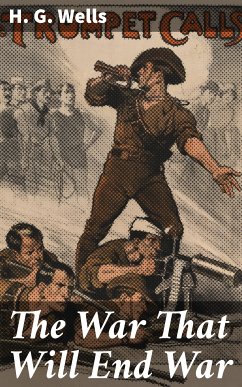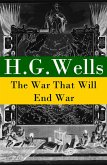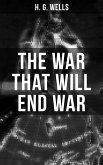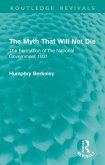In "The War That Will End War," H. G. Wells presents a profound exploration of the catastrophic impacts of war and the enduring hope for a peaceful future. Written in the aftermath of World War I, the book combines a compelling narrative with Wells's signature blend of science fiction and political commentary. Through a series of essays interspersed with fictional vignettes, Wells critiques the prevailing ideologies of nationalism and militarism while advocating for a new world order grounded in cooperation and understanding. His lucid prose and visionary thought reveal the complexities of human conflict and urge society to reflect on the possibility of lasting peace. H. G. Wells, often referred to as the father of science fiction, was profoundly influenced by his experiences in the early 20th century, including the horrors of war. His writing often served as a critique of contemporary society and a catalyst for progressive ideas. Wells was not only an accomplished novelist but also a social commentator, and his foresight into the consequences of human folly resonates powerfully in this work. His commitment to envisioning a better future is a testament to his belief in human potential. This seminal work is essential reading for anyone interested in the interplay of politics, society, and conflict. Wells's urgent message about the imperative for global unity in the face of devastation remains relevant today. The book invites readers to ponder their responsibility in shaping a world that truly embodies the principles of peace and cooperation, making it both a historical document and a visionary call to action.
Dieser Download kann aus rechtlichen Gründen nur mit Rechnungsadresse in A, B, BG, CY, CZ, D, DK, EW, E, FIN, F, GR, H, IRL, I, LT, L, LR, M, NL, PL, P, R, S, SLO, SK ausgeliefert werden.









